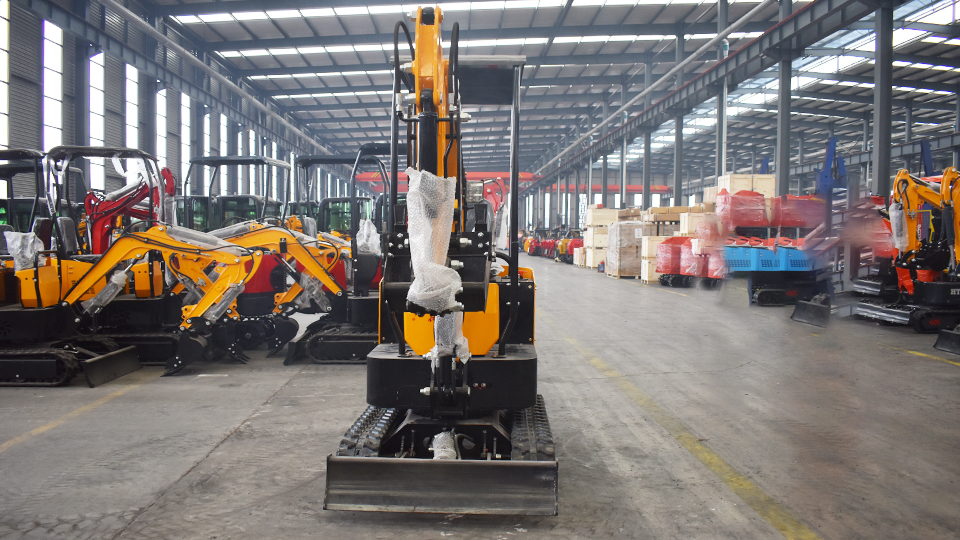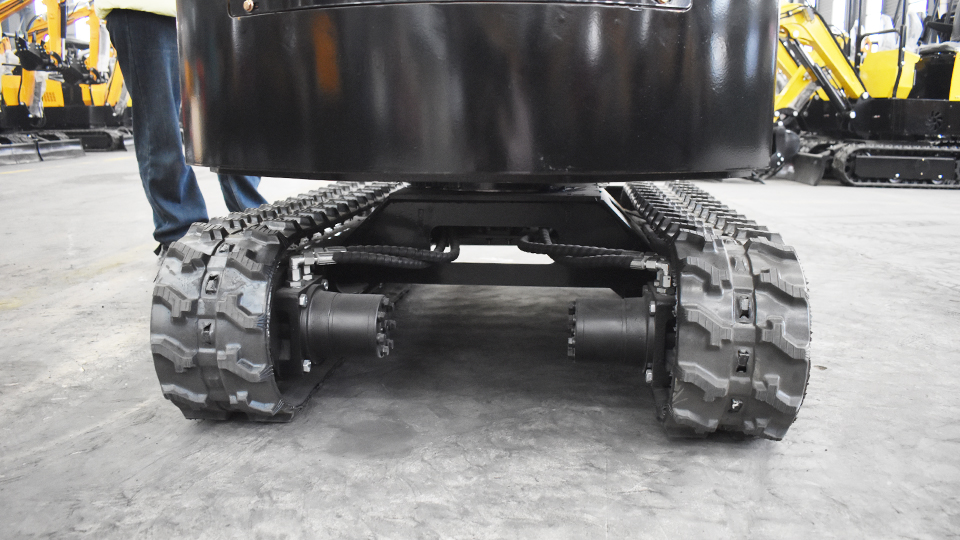The decision to purchase an excavator is a significant one, both financially and operationally. Whether you're a seasoned contractor, a small business owner, or a landowner with specific needs, choosing the right source for your excavator is crucial. This article will explore the various avenues for acquiring an excavator, providing insights into the advantages and disadvantages of each option to help you make an informed decision.
1. Excavator Dealerships:
Overview: Excavator dealerships are the traditional and often preferred route for purchasing new equipment. They are authorized representatives of major manufacturers like Caterpillar, Komatsu, John Deere, and others.
Advantages:
New Equipment: Dealerships primarily focus on selling new mini excavators for rent, offering the latest models with the most advanced features and technologies.
Warranty and Service: Dealerships provide comprehensive warranties, ensuring that any manufacturing defects are covered. They also have trained service technicians and access to genuine parts, ensuring prompt and efficient maintenance and repairs.

Financing Options: Dealerships often collaborate with financial institutions to offer competitive financing options, including loans and leases, making it easier to acquire the equipment.
Expert Guidance: Sales representatives at dealerships are knowledgeable about the different models, their applications, and the specific needs of various industries. They can provide expert advice and guidance to help you select the right excavator for your requirements.
Disadvantages:
Higher Costs: New excavators from dealerships typically come with a higher price tag compared to used options.
Limited Negotiation: While some negotiation is possible, the pricing at dealerships is generally less flexible compared to other avenues.
2. Used Equipment Dealers:
Overview: Used equipment dealers specialize in buying and selling pre-owned construction equipment, including excavators. They often have a wide variety of models from different manufacturers available in various conditions.
Advantages:
Lower Costs: Used excavators offer a more budget-friendly option compared to new equipment, making them accessible to a wider range of buyers.
Wider Selection: Used equipment dealers typically have a larger inventory than individual sellers, offering a wider range of models and sizes to choose from.
Potential for Negotiation: Negotiating the price of a used excavator is often easier than with new equipment, allowing for more flexibility in your budget.
Disadvantages:
Condition Variability: The condition of used equipment can vary significantly. Thorough inspections and potentially hiring a qualified mechanic for an independent assessment are crucial.
Limited Warranty: Warranties on used equipment are often limited or non-existent, increasing the risk of unexpected repair costs.
Finding Reliable Sellers: It's essential to choose a reputable used equipment dealer to ensure the quality and authenticity of the equipment.

3. Online Marketplaces:
Overview: Online platforms like IronPlanet, Equipment Trader, and Machinery Trader have become popular for buying and selling construction equipment, including excavators. These platforms connect buyers and sellers from around the world.
Advantages:
Large Selection: Online marketplaces offer a vast selection of excavators from various sources, including dealers, rental companies, and private sellers.
Convenience: Browsing and searching for equipment can be done conveniently from anywhere with an internet connection.
Transparency: Many online platforms provide detailed information about the equipment, including specifications, photos, and sometimes even video inspections.
Disadvantages:
Buyer Beware: Online marketplaces can have varying levels of quality control. It's crucial to carefully research sellers and exercise caution when dealing with unfamiliar parties.
Potential for Scams: Be wary of deals that seem too good to be true and conduct thorough due diligence to avoid scams.
Shipping and Logistics: Arranging transportation for heavy equipment can be complex and costly, especially when dealing with long distances.
4. Auctions:
Overview: Equipment auctions, both live and online, offer a unique opportunity to acquire excavators at potentially competitive prices.
Advantages:
Competitive Pricing: Auctions can lead to significant price reductions, especially when there is strong competition among buyers.
Excitement and Thrill: The auction environment can be exciting, and the possibility of acquiring a valuable piece of equipment at a bargain price can be thrilling.
Disadvantages:
Uncertainty: The final price of an item at auction is unpredictable, and there's always the risk of overpaying.
Time Commitment: Auctions can be time-consuming, requiring research, travel, and sometimes even bidding wars.
Potential for Overspending: The competitive atmosphere can sometimes lead to impulsive bidding and overspending on equipment.
5. Rental Companies:
Overview: While primarily focused on equipment rentals, some rental companies also offer used equipment for sale.
Advantages:
Well-Maintained Equipment: Rental companies typically maintain their equipment to high standards to ensure reliability and longevity.
Potential for Financing: Some rental companies may offer financing options for the purchase of used equipment.
Opportunity for Test Drives: Renting equipment before purchasing can provide valuable insights into its performance and suitability for your needs.
Disadvantages:
Limited Selection: The selection of used equipment for sale from rental companies may be limited compared to other sources.
Potentially Higher Prices: Prices for used equipment from rental companies may be slightly higher due to their generally well-maintained condition.
6. Private Sellers:
Overview: Individuals and businesses may sell their used excavators directly, often through classified ads or online platforms.
Advantages:
Potentially Lower Prices: You may be able to negotiate a lower price directly with a private seller.
Personalized Service: Dealing directly with the owner can provide more personalized service and insights into the equipment's history.
Disadvantages:
Higher Risk: Buying from a private seller can carry higher risks, as there may be less transparency and fewer guarantees compared to dealing with established dealers.
Finding Reliable Sellers: Identifying trustworthy private sellers can be challenging and may require careful research and due diligence.
Factors to Consider When Choosing a Source:
Budget: Determine your budget upfront and choose a source that aligns with your financial constraints.
Equipment Type and Size: Identify the specific type and size of excavator you need based on your intended applications.
Condition and Age: If purchasing used equipment, carefully assess its condition and age to ensure it meets your requirements and longevity expectations.
Warranty and Service: Investigate the warranty coverage and service options available from different sources.
Location and Logistics: Consider the location of the seller and the logistics of transporting the equipment to your site.
Reputation and Reviews: Research the reputation of the seller or dealership and read reviews from other customers to gain insights into their reliability and customer service.
Tips for a Successful Purchase:
Thorough Research: Conduct thorough research on the different sources, models, and prices before making a decision.
Inspect the Equipment: If possible, conduct a thorough inspection of the equipment before purchasing, or hire a qualified mechanic to perform an independent assessment.
Negotiate Wisely: Don't be afraid to negotiate the price, especially when dealing with used equipment or in competitive markets.
Read the Fine Print: Carefully review all contracts and agreements before signing to understand the terms and conditions.
Seek Professional Advice: If you're unsure about any aspect of the purchase, consult with a trusted advisor or expert in the field.
Conclusion:
Choosing the best place to buy an excavator requires careful consideration of your specific needs, budget, and risk tolerance. By carefully evaluating the advantages and disadvantages of each source and conducting thorough research, you can make an informed decision and acquire the right excavator for your project or business.
Post time:Sep-25-2020
